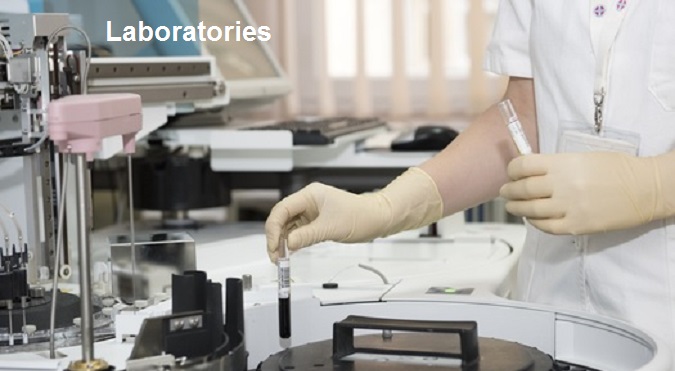One of the largest laboratory fraud settlements occurred recently resulting in $256 million paid to the government to settle allegations surrounding the False Claims Act, the Anti-Kickback Statute, and the Stark Law. Specifically, the settlement resolves allegations that Millennium Laboratories billed Medicare, Medicaid, and other federal health care programs for medically unnecessary drug testing and genetic testing, and provided kickbacks to physicians to induce business. This settlement highlights the serious nature of laboratory physician relationships and should serve as guidance to the laboratories across the country regarding using best practices to mitigate risks.
Allegations
The allegations evolve around various practices associated with physician referral sources. Please keep in mind that these are only allegations. The allegations as a part of the complaint include the following:
Summary from Complaint
Billing for Additional and Unnecessary Tests – See 42 C.F.R.
§§ 410.32(a), (d)(2).
Alleged Kickbacks to Physicians
Obviously there are some serious allegations here involving alleged over-testing, causing physicians to over-test for certain issues, and kickbacks to physicians in the form of free POCs. So what does this mean for future laboratories and how they should interact with physicians?
Medicare Laboratory Law
As many of the readers are aware, laboratory services are covered by the Medicare program. However, laboratory services must meet all applicable requirements of the Clinical Laboratory Improvement Amendments of 1988 (“CLIA”) (you can find this in 42 C.F.R. Part 493). Further, Medicare Part B does pay for covered diagnostic laboratory tests that are furnished by a laboratory.
(v) A laboratory, if it meets the applicable requirements for laboratories of part 493 of this chapter, including the laboratory of a nonparticipating hospital that does not meet the requirements for emergency outpatient services in subpart G of part 424 of this chapter.
Nevertheless, although laboratory services can be reimbursed, Medicare Part B only covers laboratory services that are reasonable and necessary as required under 42 USC 1395y(a)(1)(A). Further, all diagnostic tests must be ordered by either a physician, clinical nurse specialist, clinical psychologist, clinical social worker, nurse-midwife, nurse practitioner, or physician assistant (“Ordering Practitioner”).
The Ordering Practitioner must be the individual Practitioner that is treating the patient and tests ordered by another individual would not be considered reasonable and necessary. The key factor is that the test must be ordered which means a communication from the Ordering Practitioner that a diagnostic test be performed (See Section 80.6.1).
The interesting part here is that as a part of the allegations, the tests that were ordered by physicians were not medically necessary. However, Medicare regulations state that a laboratory’s claim for a service will be denied if there is not sufficient documentation in the patient’s medical record. This means that the Ordering Practitioner is the individual in charge of the record yet the laboratory is responsible. The government would argue that laboratories do have the power to request additional documentation from Ordering Practitioners as established under 42 CFR 410.32(d)(3). So although the laboratory is not directly involved in the medical necessity decisions, “the entity submitting the claim may request additional . . . information from the” Ordering Practitioner “to document that the services it bills are reasonable and necessary.”
In short, you can see how a laboratory is responsible for ensuring each link as a part of the Medicare billing process meets the Medicare regulations. In this case, it has been alleged that some of these requirements have not been met, thus allegedly unnecessary tests were ordered.
Kickback and Stark Allegations
As a part of the complaint, it was also alleged that the Anti-Kickback Statute and Stark Law were violated. The Federal Anti-Kickback Statute is a criminal statute that prohibits a person or entity from exchanging, or offering to exchange, anything of value, in an effort to induce or reward the referral of Federal health care program business. This includes all Federal health care programs including Medicare and Medicaid. Notice, this criminal statute does have an intent based component to it in that the individual or entity must be doing something knowingly or willingly. In other words, if the Federal government cannot establish knowledge then the Anti-Kickback Statute cannot be violated.
The Stark Law on the other hand is a bit different. The Stark Law is implicated when an entity, such as a hospital, has a financial arrangement with a physician. In the event the physician makes a referral to the entity, then the Stark Law may be implicated. In both cases, the allegations involving the Anti-Kickback Statute and Stark Law related to the POCs. Thus, referring physicians were allegedly receiving remuneration in the form of POCs. You can click the following links for more information on the Stark Law and the Anti-Kickback Statute.
Takeaway Points
- Laboratories should be mindful of their responsibilities of providing correct documentation. Even if an Ordering Practitioner is responsible for an order, the laboratory needs to ensure that each link in the billing regulations has been met.
- Marketing practices should not have a clear nexus between the marketing and inducing referrals. Marketing itself can be risky in healthcare because often there is a fine line between marketing and free products. Analyze your marketing practices to ensure compliance.
- Closely analyze any practices that involve physician referral sources. In this case, not only marketing practices but also processes in place that involve physicians.

